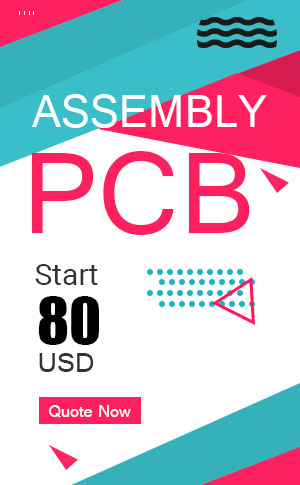General, quoting & support.
Add: Building E, No.58, Nanchang Road, Xixiang , Baoan District Shenzhen City, Guangdong, China
Tel : 0755-27348887
Fax : 0755-27349876
E-mail : svc@pcbastore.com
-
7 Step Process to Evaluate a PCB Assembly Manufacturer for Your Needs
7-step process to evaluate a PCB assembly manufacturer, covering key factors:1. Quality and Certifications · 2. Manufacturing Capabilities · 3. Experience and Industry Reputation · 4. Production and Lead Times · 5. Cost and Pricing · 6. Testing and Support Services · 7. Red Flags to Watch.
2025-06-26 PCBA Store 749 -
Low Volume vs. High Volume PCB Assembly Manufacturing
Low volume PCB assembly enables cost-effective prototyping and design flexibility with short lead times, while high volume PCB assembly offers low per-unit cost, automation, and consistency for large-scale production. Key trade-offs include customization, setup time, and cost per board.
2025-06-20 PCBA Store 1203 -
PCBAStore: Top Turnkey PCB Assembly Manufacturer in China
PCBAStore offers turnkey PCB assembly services covering design, component sourcing, manufacturing, assembly, testing, and global delivery. Fast prototyping (as quick as 8 hours), no MOQ, competitive pricing with bulk component procurement, and 100% refund on quality defects provide cost-effective, reliable solutions for automotive, medical, industrial, and consumer electronics industries worldwide.
2025-06-19 PCBA Store 976 -
How X-Ray Inspection Detects Hidden Defects in PCB Assemblies
X-ray inspection of PCB assemblies detects hidden defects by using high-energy photons to penetrate the board and create detailed images of its internal structure. These images reveal variations in density, allowing inspectors to identify defects like solder bridges, voids, and pin-hole fills.
2025-06-13 PCBA Store 1054 -
Flex PCB Assembly: A Comprehensive Overview
Flex PCB assembly means putting electronic parts on bendable materials like polyimide or polyester. These boards can bend, fold, or twist, fitting into tiny or tricky spaces. This bendability makes the flex PCB assembly process perfect for gadgets like phones, wearables, and medical tools.
2025-05-30 PCBA Store 1716 -
What Is an In-Circuit Test for PCB Assemblies?
Prevent costly PCB failures with in-circuit testing (ICT)—a method that tests each component directly on the board for fast, accurate defect detection.
2025-05-29 PCBA Store 1538 -
Double Sided PCB Assembly and Soldering: A Comprehensive Guide
Unlock the secrets of double sided PCB assembly and soldering with our easy guide to processes, benefits, and tips for reliable electronics! (134 characters)
2025-05-23 PCBA Store 1150 -
The Advantages and Disadvantages of Surface Mount Technology in PCB Assembly
Surface Mount Technology powers compact, efficient PCBs but has challenges—learn its pros and cons for your next project!
2025-05-22 PCBA Store 1131







